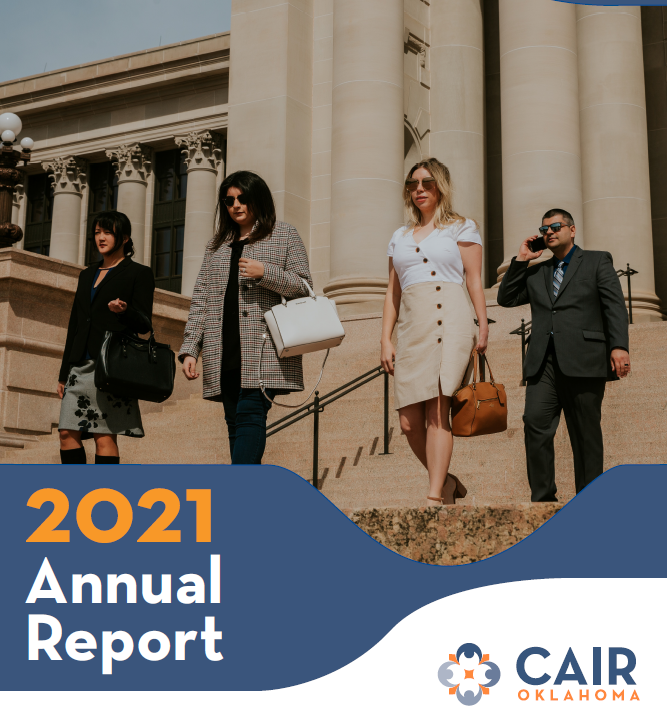In 2006, Lobna Hewedi moved to Oklahoma from Los Angeles, where she had worked for the Los Angeles Chapter of the Council on American-Islamic Relations. She enjoyed the experience, but even more so, she saw the benefit the organization brought to the Muslim community of Southern California. Upon moving to Oklahoma, she set out on a mission to gather a group of like-minded individuals and open a chapter of the Council on American-Islamic Relations in Oklahoma. A year later, the Oklahoma Chapter of the Council on American-Islamic Relations (CAIR Oklahoma) had an office and their first full-time executive director, Razi Hashmi.
From 2006 until 2014, the presence and notoriety of CAIR Oklahoma grew across the state and nationally with some groundbreaking civil rights cases. In 2007, CAIR Oklahoma assisted Samantha Elauf, a Tulsa Muslim teen, when she was discriminated against by Abercrombie & Fitch, who did not hire her because she wore a headscarf, or hijab, as a part of her Muslim faith. Ms. Elauf’s case eventually went to the United States Supreme Court that held, in an 8-1 decision, an employer may not refuse to hire an applicant to avoid accommodating a religious practice.
In 2010, CAIR Oklahoma grabbed the attention of the entire country when its second executive director, Muneer Awad, filed a lawsuit against the state of Oklahoma following the 70% approval of Oklahoma’s Anti-Shariah Amendment, State Question 755, by voters. With the lawsuit filing, Mr. Awad and his co-plaintiffs were granted a temporary injunction against the state question. The legal battle lasted three years, and eventually, Judge Vicki Miles-LaGrange issued a permanent injunction against State Question 755, stating the state question violated the First Amendment of the Constitution’s Establishment Clause.
In the years since CAIR Oklahoma has grown into a statewide social justice and educational organization serving Oklahoma Muslims through its Oklahoma City office. The organization now has full-time departments dedicated to civil rights, government affairs, community outreach and prison ministry. The organization’s mission has evolved over the years, but one thing remains constant: To improve the quality of life for Muslims in Oklahoma through education, advocacy and building coalitions to promote justice for people of all cultures and faiths.

